Indulge in that #vanlife with the best vans for camper conversions and advice on how to do it
With balmy weather on the horizon and the promise of long summer holidays, there is a good chance you may have considered investing in camper van to embark on that dream staycation.
The fact of the matter is, there has been a boom in van ownership over recent years, with Auto Trader revealing that demand for commercial vehicles was up 57% year-on-year during the global pandemic and that demand isn’t waning.
An enforced requirement to stay home fuelled the desire to get out on the open road when restrictions lifted, and many turned to vans and other Light Commercial Vehicles as the method to do so.
You only have to scroll through Instagram and Tik-Tok to see the number of folk taking on self-build projects and exploring far flung destinations.
But what if you can’t afford one of the ready-made solutions, such as Volkswagen’s gorgeous California line or the plucky Ford Nugget?
Thankfully, you can convert almost any panel van into a luxury camper with a little DIY knowledge or by enlisting the help of a professional outfit.
If this has fuelled your wanderlust, take a look at our guide to some of the best vans currently on the market, as well as tips on the conversion process.
Top 5 vans for a camper conversion
1. Volkswagen Crafter
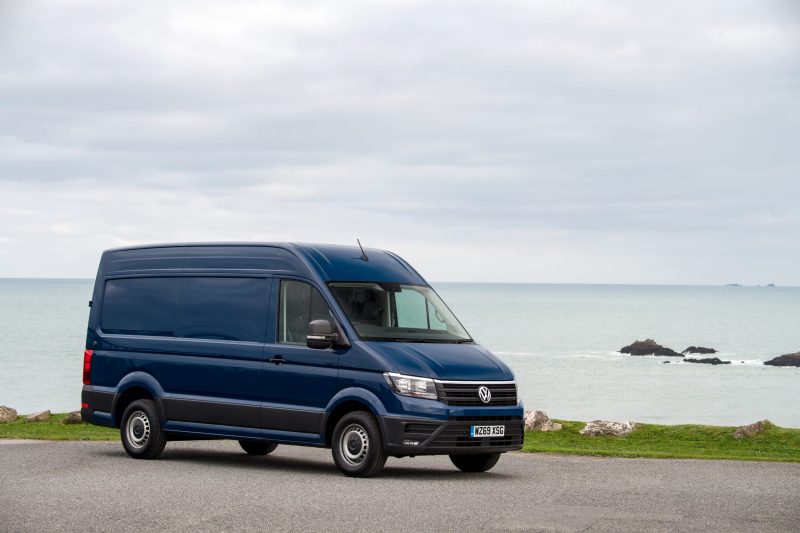
The large, practical and surprisingly easy to drive Crafter is arguably the pinnacle of the camper can conversion world, purely because it has an absolutely enormous load volume and comes kitted out with the latest driving technology. It’s plush, for a commercial vehicle.
Niceties, such as front and rear parking sensors, a silky smooth six-speed manual gearbox and a 10.4 inch infotainment system make it feel like an oversized Golf to drive, while the option of longer wheelbases and high roofs mean it can swallow even the most lavish projects.
However, prices start at around £55,500 for the latest model, so road trips won’t come cheap and to compound matters, they boast fantastic residual values, so even turning to the used market won’t exactly throw up many bargains.
2. Ford Transit Van
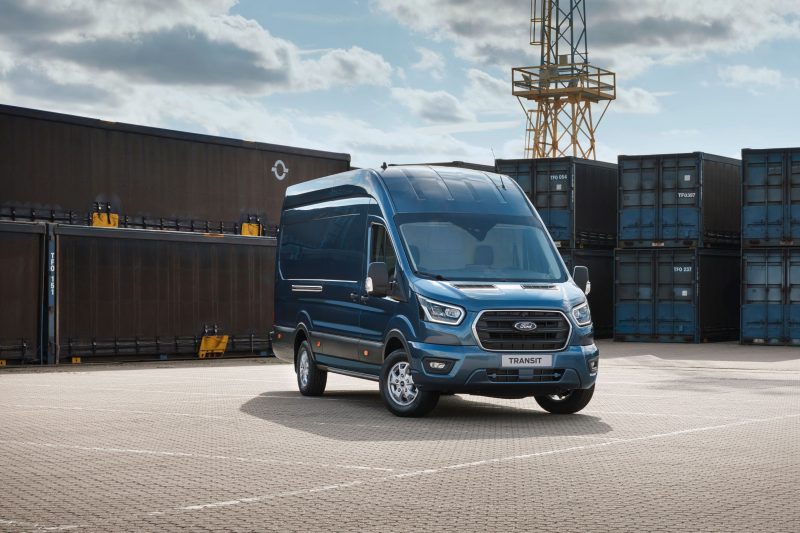
It needs very little introduction, seeing as the humble Transit has been the lifeblood of the British economy for almost 60 years, but the latest model is arguably the most accomplished yet.
It can be optioned as a double cab-in-van, which means more space for the family to travel safely, while several wheelbase lengths and roof heights ensure you can get exactly the sort of space you need in the back for beds, cooking equipment and even showering facilities.
Standard equipment is good, with Ford’s Sync 4 infotainment system (complete with whopping 12-inch touchscreen) and a comprehensive package of active driver assistance technology offered.
The latest version is a comfortable place to while away the miles and it comes in cheaper than VW products, with prices starting at around £48,000. Oh, and you don’t have to buy it in white, either.
3. MAN TGE
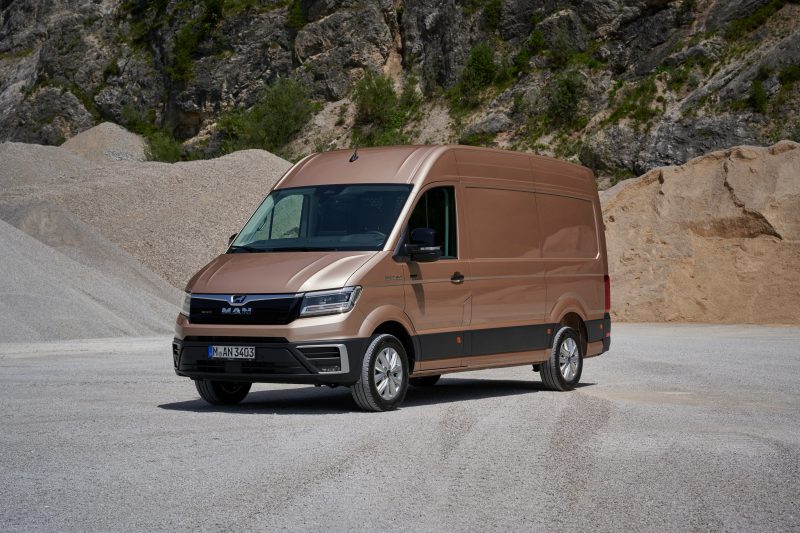
Big, tough and willing to tackle most terrain, the MAN TGE has become a popular option with camper conversion fanatics as it offers a fantastic amount of interior space, technology and pulling power for the money.
Basic panel vans start at around £35,000, with numerous powertrains and sizes on offer. An all-wheel-drive version could be the perfect option if you are planning on taking adventures off the beaten path, while the big 2.0-litre engine can be specified with 174bhp and 410Nm of torque, meaning it can haul heavy kit that you may have installed in the rear.
As with the Ford Transit Van, there’s also the option of an electrified version with around 80-90 miles of range, which could be the choice to go for if you’re keeping the camping experience fairly local.
4. Citroen Relay
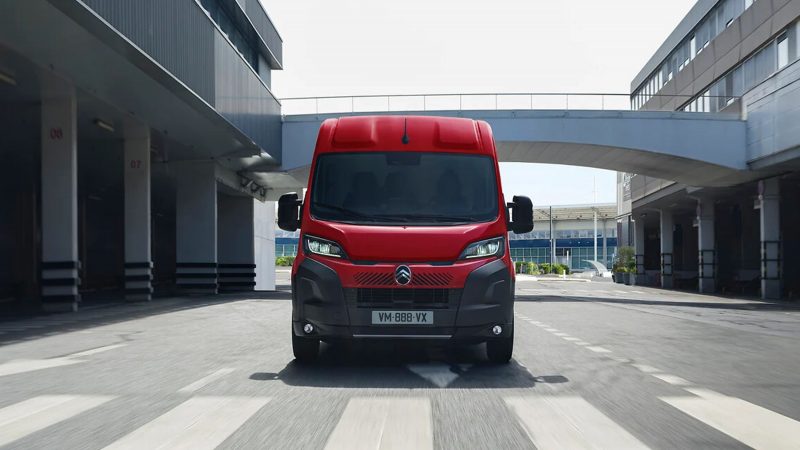
The largest van in the Citroen range has recently been overhauled with a new range of powerful but economical engines, as well as an impressive suite of onboard equipment and comfort features.
An impressive load capacity of 1,500kg means it will happily handle even the largest camper conversion projects and the numerous wheel bases and body styles means there should be an option to tick all project boxes.
The more potent diesel engines come with the option of an 8-speed automatic gearbox, which makes high mileage more pleasant to cover off. In addition to this, standard features like the reversing camera, climate control and touchscreen infotainment make it more car-like than previous generations of Relay, which is a boon for the uninitiated.
5. Volkswagen Transporter
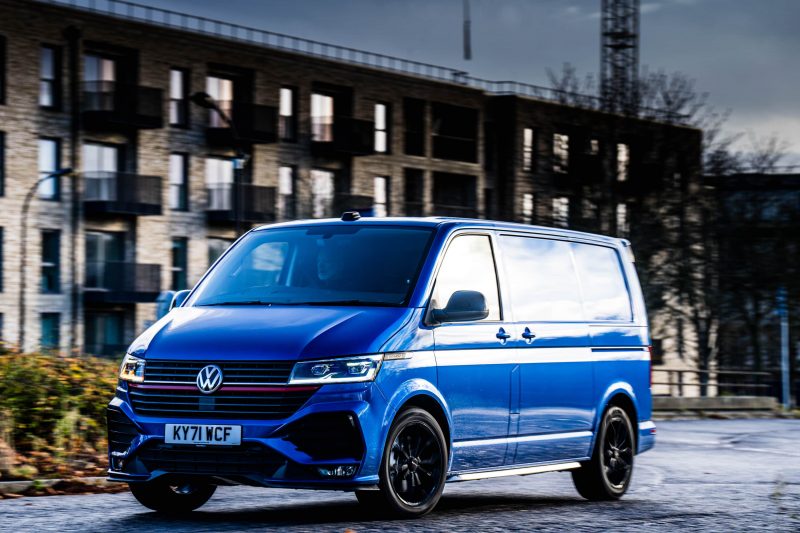
Granted, it’s another VW making the list, but the Transporter is arguably one of the most popular models for camper conversions in Europe. Pull up at any campsite and we bet you can count multiple T4, T5 and T6 variants flaunting their pop-roof mechanisms and fancy built-in kitchens.
In fact, there are a number of conversions companies in the UK that Specialise in more compact and easier to live with Transporter, while a comprehensive parts market makes it a doddle to buy off-the-shelf equipment that has been designed to play nicely with several generations of Transporter.
We are now in version 6.1, with an even newer model that shares its platform with the upcoming Ford Transit due sometime in 2025. But like the Crafter, even basic 6.1 Panel Vans are pricey, with a buoyant used market making it difficult to snare a used bargain.
That said, there are so many that have already been converted, it is highly likely you will find a nice T5 with all of the camper van flourishes for less than what you would pay for a brand new T6.1 fresh from the forecourt.
Camper van conversion Q&A
What is the law surrounding camper van conversions?
If you are simply planning on fitting out the rear of the van with sleeping, cooking and general camping equipment, there is no need to inform the DVLA, so long as what you are fitting doesn’t go beyond the maximum payload of the vehicle in question and it is safely installed.
However, if you want to register the vehicle as a motor caravan, it must fit certain criteria, such as having rear windows, a separate door for access and and a permanent high-top roof. The DVLA website is your best source of information on the matter.
Some owners have found that correctly registering a panel van as a leisure vehicle has reaped rewards when it comes to lower insurance premiums and slightly less expensive MOTs.
Also bear in mind that it is illegal for passengers to travel in the rear unless you have a legal seating and seatbelt configuration. This will have to be approved during the MOT process.
Can I convert a van myself?
Most definitely, and there are thousands of videos online that chart the process of a camper van conversion. Anyone with a vague knowledge of DIY and carpentry can have a go, while the Internet is a fantastic resource for tips on up-cycling old kitchen cupboards and re-using parts to keep the costs of a build top a minimum.
That said, if the thought of power tools and plywood fills you with dread, it might be worth seeking out a professional camper conversion company, which leads us neatly to…
How much does a camper van conversion cost?
This is really a “how long is a piece of string” question, because budgets can quickly spiral if you start adding fancy custom carpentry, bespoke lighting and/or showering and toilet facilities.
Reborn Campers, which specialises in Volkswagen Transporter conversion projects (there are many others), suggests that the most basic professional builds cost between £5,000 and £10,000 and features insulation, flooring, simple kitchen facilities, and a bed.
Luxury conversions, which contain high end kitchen facilities and premium materials can easily cost in excess of £20,000. Add showers, toilets and pop-top roofs for additional sleeping space and that can tickle £40,000.
That said, we’ve seen DIY projects completed for as little as a few hundred pounds and a lot of up-cycling know-how.
However, bear in mind that a well-executed camper conversion will aid resale value when it comes time to move it on, so it is not money wasted.
By Leon Poultney

